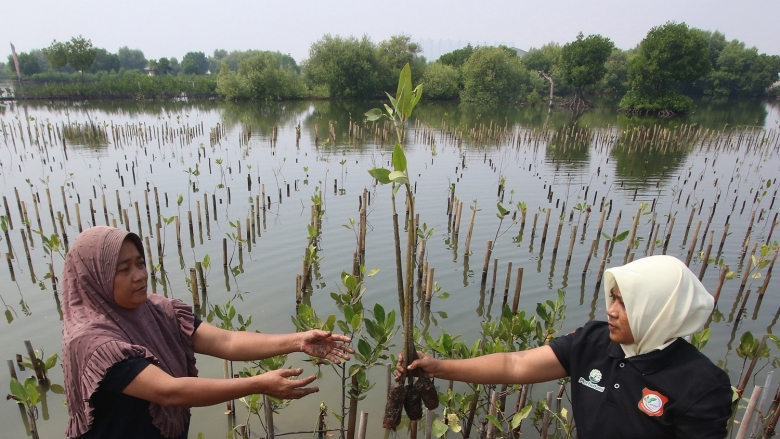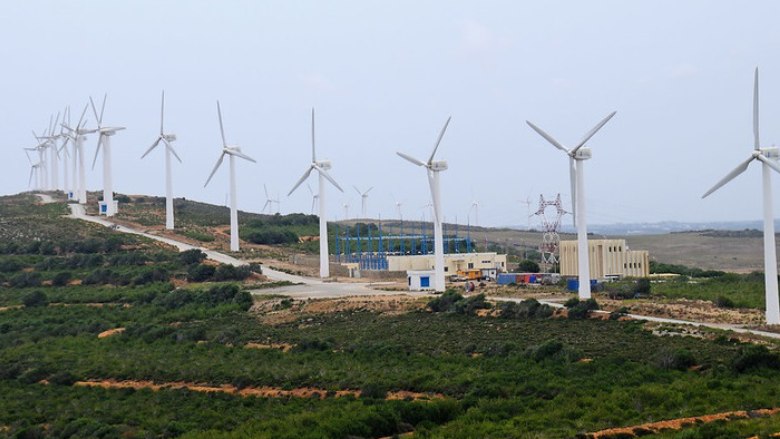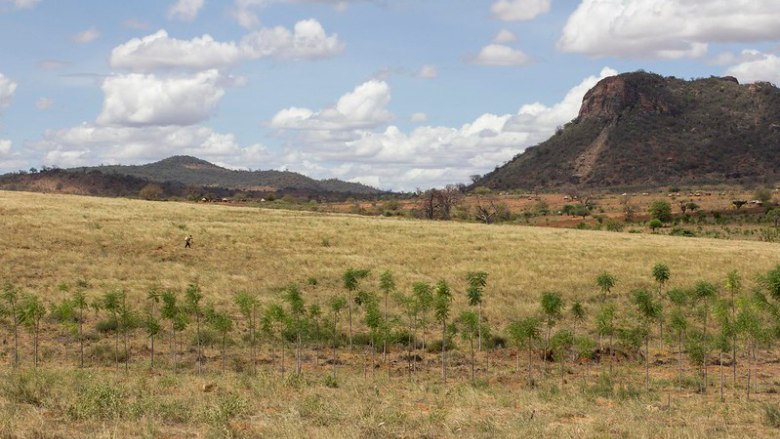Environment

-
 Embedding Ecosystem Services into PolicyE-Learning | Environment | For Government Officials
Embedding Ecosystem Services into PolicyE-Learning | Environment | For Government OfficialsThis course examines ecosystem services science and its role in shaping policies and projects. It features insights from leading scientists and economists to explore the integration of ecosystem services into decision-making. Participants will learn how to apply these concepts to achieve sustainable environmental and economic outcomes.
-
Ocean Governance Capacity Building Training Program – E-Learning Course (Elective Modules)E-Learning | Environment | For Government Officials
This course examines global ocean governance and the legal framework for the blue economy, with a focus on the United Nations Convention on the Law of the Sea. It covers key issues such as fisheries, marine pollution, conservation, climate change, and maritime transport. Participants will gain an understanding of the international legal principles governing ocean resources and activities.
-
Circular Economy: Introduction to Air Quality ManagementE-Learning | Environment | For Government Officials
This course in Air Quality Management is designed for development professionals, government officials, and other partners interested in learning about air quality management planning. It covers the fundamentals of air quality management and how successful programs can reduce harmful emissions. The course emphasizes the local and global development benefits that come with effective air quality management.
-
Technical Design and Premium Calculations for Crop Climate InsurancesE-Learning | Agribusiness Value Chain | For Private Sector Leaders
This course, delivered by the International Finance Corporation, introduces key concepts of risk calculation and sensitivity analysis in agricultural climate insurance contracts. Participants will study contract triggers such as consecutive dry days, total rainfall, and risk-sharing methods like deductibles, limits, and co-insurance. Through practical exercises and comprehensive Excel-based illustrations, learners will gain the skills to modify and adapt climate-based insurance contracts.
-
Environmental and Social Academy for Municipal OfficersE-Learning | Environmental and Social Risk Management | For Government Officials
This course, delivered by the International Finance Corporation (IFC), explores three IFC-financed projects—a wastewater treatment plant, a solid waste treatment project, and a public transportation upgrade. Through interactive decision points, participants will learn how municipalities can address environmental and social (E&S) challenges. The course provides practical insights into mitigating E&S risks throughout the investment lifecycle.
-
International Financial Reporting Standards: Sustainability Disclosure StandardsE-Learning | Shared Prosperity | For Private Sector Leaders
This training program, delivered by the International Finance Corporation, supports capital market participants in implementing the International Financial Reporting Standards Foundation's (IFRS) Sustainability Standards: IFRS S1 (General Requirements for Disclosure of Sustainability-Related Financial Information) and IFRS S2 (Climate-Related Disclosures). Developed in collaboration with the UN Sustainable Stock Exchanges (UN SSE), International Finance Corporation, and the IFRS Foundation itself, the course builds capacity for global adoption of sustainability-related financial disclosures. Offered free of charge through UN SSE Partner Exchanges, it ensures consistent and effective application of these new standards.
-
Managing Environmental and Social Performance (MESP)E-Learning | Environmental and Social Risk Management | For Private Sector Leaders
This course, delivered by the International Finance Corporation (IFC), introduces participants to the IFC Performance Standards and provides tools to identify and address environmental and social (E&S) risks in projects. Through practical case studies, learners will explore different types of E&S risks, communicate them effectively to clients, and understand the topics covered by the IFC Performance Standards. By the end of the course, participants will know where to find additional resources to enhance their knowledge.
-
Sustainability Training and E-Learning Program (STEP)E-Learning | Shared Prosperity | For Private Sector Leaders
This course, delivered by the International Finance Corporation, is designed for managers and staff of financial institutions, including banks, private equity funds, leasing companies, and microfinance institutions. It helps participants understand sustainable finance, social and environmental risk management, and sustainability-related business opportunities. By the end of the course, learners will be better equipped to integrate sustainability into financial decision-making.
-
An Introduction to Nature-Based SolutionsE-Learning | Environmental and Social Risk Management | For Government Officials
This course explores the concept of nature-based solutions (NBS) and their real-world applications across various landscapes and sectors. Learn about the key enabling factors, such as governance, inclusion, and finance, that are essential for successful NBS implementation.
-
Learn Blue BriefBrief | Ocean Governance, Blue Economy | For Government Officials
The Learn Blue initiative, part of the PROBLUE program, offers training on tools for managing coastal and marine resources sustainably. It focuses on topics like Marine Spatial Planning and the Blue Economy Development Framework to support blue economy strategies.
-
Integrated Land-Use InitiativesE-Learning | Climate Change | For Government Officials
This course introduces integrated land use as a method to balance environmental, social, and economic considerations in land management. It covers key topics such as stakeholder engagement, sustainability, financing, and policy coordination to address complex land-use challenges.
-
 Landscape Governance AssessmentE-Learning | Environment | For Government Officials
Landscape Governance AssessmentE-Learning | Environment | For Government OfficialsThis self-paced course introduces core concepts in landscape governance for integrated landscape management. Designed for government officials, World Bank task teams, and development practitioners, it provides practical guidance to diagnose governance gaps and align policies, roles, and decision-making for stronger landscape governance. By equipping learners to anticipate challenges and propose context-specific solutions, the course supports more effective, equitable, and sustainable interventions.









